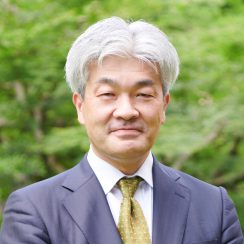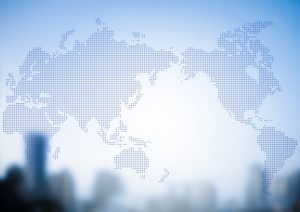Proposed in May 2022 to come into effect in April 2023, Japan’s economic security package is a response to the challenges of the new global economic order. US-China rivalry has undermined the basic principle of free trade as the state exercises more power to shape the market economy. The Russian invasion of Ukraine and subsequent economic sanctions have led to Moscow using natural gas as a “weapon” against the West. For a country like Japan which has built its modern identity on the tenets of free trade, this perplexing situation required the swift preparation of new policy measures.
Securing the supply chain and critical infrastructure
The first of the four pillars in Kishida’s economic policy is supply chain resilience, in light of precedents such as China’s banning of rare earth mineral exports in 2010 during the height of tensions over the Senkaku Islands. Reducing dependency on China and other countries is a necessary defense against such economic statecraft. Japan is a major importer of Chinese solar panels and storage batteries under increasing demand from an international boom in the low-carbon industry. This highlights the need for a coordinated technology policy to bolster Japan’s economic security.
The government designated important domains for protection: semiconductors, cloud services, batteries, permanent magnets, machining tools/industrial robots, aircraft parts, critical minerals, LNG, maritime components, antibiotics and materials for fertilizers. As Japan faces difficulties in gaining a competitive edge over countries with cheaper production, the government should reserve the right to intervene in high-security risk areas, even at heavy costs.
This is linked to the policy’s second pillar of safety and reliability of critical infrastructure. Chinese equipment has also become a major component in the rollout of next-generation 5G communications networks. There are increasing voices of concern over the potential for Chinese authorities to intercept or even shut down communications in the event of a conflict. The subsequent measures from countries such as the US to ban purchases of Chinese equipment do not address the root concern, which is the high cost of obtaining this infrastructure elsewhere. Hence, Japan needs to boost the cost-competitiveness of Japanese 5G equipment via a reorientation of Japan’s basic science and technology policy as a protectionist measure. The view to date that competitiveness stems from the development of new technologies must be expanded to include innovations in cost reduction.
Guiding public-private cooperation for cutting-edge and sensitive technology

On the science and technology side, the government will attempt to strategically support the country’s competitiveness and reduce its dependence on imports by guiding cutting-edge public-private research between academia and industry. This is the third pillar in the new economic security policy. Key fields will likely be centred on its previously announced research and development vision in maritime, space, cyber and bio-technologies, including AI, robotics, advanced sensors and advanced energy technologies.
Alongside this, they will likely issue guidance pertaining to security concerns. Because academic and corporate researchers do not actively monitor the risk of sensitive technologies becoming appropriated by foreign governments for military purposes, the new economic security legislation will create a system to prevent the disclosure of patents involving such technology. This is the fourth and final pillar of the new policy.
A new economic security office established within the Cabinet Office may attempt to coordinate these guidelines across the numerous current government units responsible for technology, including the Ministry of Education and the Council for Science, Technology and Innovation. Without the streamlining of competencies, however, any new framework is likely to compound the duplications and inefficiencies of the current system. The onerous task of administrative reform was bypassed by the government as it opted to speedily submit a package of bills. Under these circumstances, the pursuit of a coherent, strategic technology policy with economic security concerns is unlikely to progress in the short term.
Implications for military capabilities and technology transfer
From the new policy, we are able to read two impacts on the direction of Japanese technology. The first is an implicit agenda to provide an alternative communication channel with academia without the involvement of the Ministry of Defence. Japan has long upheld a high moral bar for collaborative projects involving the Ministry of Defence, whose self-defense posture meant that only limited academic research was required for the development of short-range capability weapon systems. However, as current military technology incorporates emerging fields such as AI or robotics, the need for collaboration with civilian research on potential dual-use technologies has increased, and is given an indirect pipeline by the new economic security policy.
Second, its element of risk mitigation is a double-edged sword: while it may create new R&D opportunities, the additional regulations could also inhibit innovation. Rules designed to prevent the leakage of sensitive information (including proposed restrictions on the participation of certain foreign students and researchers in sensitive programmes) are likely to negatively impact the free flow of scientific research. Care must also be taken to ensure policies to reform supply chains do not merely transfer dependency from one foreign country to another. Inviting foreign manufacturers to build production facilities in Japan, as in the case of the Taiwan Semiconductor Manufacturing Company (TSMC), is one way of mitigating risk and dependency.
Unifying a rally for economic resilience
While the change in the relationship between state power and the market and diverting of supply chains are threats to the traditional ways of doing business, Japanese companies have begun to consider geoeconomic risks as part of their costs. To balance the risks of trade becoming weaponised, they requested the government to narrow the law’s scope to critical items. Much care was devoted to clear communication with businesses and was the key element to the success of Kishida’s economic security package.
(Editor: Clement Ng)
Related links
Japan’s Resilience: Toward a New Tech Policy for the Age of Economic and National Security



